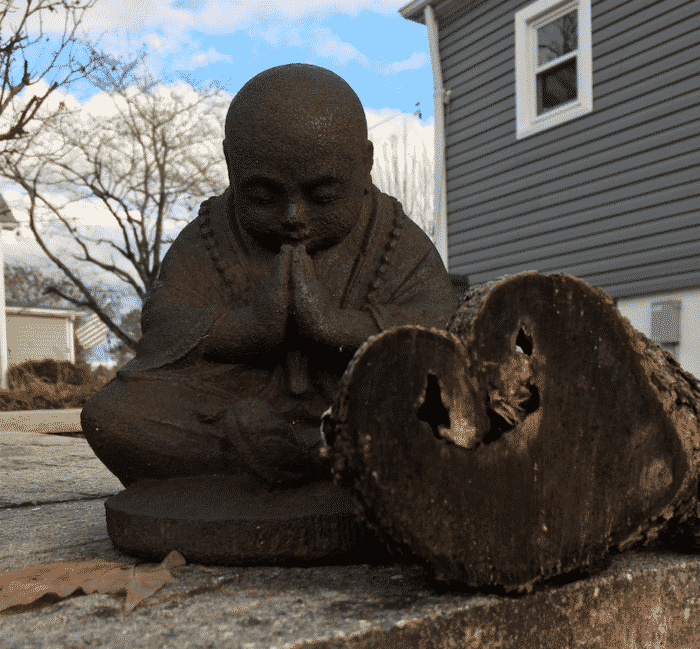As a clinical social worker with experience in the hospital setting, agency setting, schools, and now private practice I see there are so many ways people need and want to seek support throughout their lifetime. I want to discuss specifically one form of therapeutic support here, Buddhist psychotherapy and if it might be for you.
Those 4 reasons why Buddhist psychotherapy might be for you are as follows.
- If you have a meditation practice
- If you practice Buddhism or you have a spiritual practice
- If you interested in mixing Eastern & Western ideas of mind, heart, and healing
- If you have had an important psychedelic experience, spiritual experience, or transpersonal experience that you are wanting to explore and integrate
If you can relate to 1 or more of the 4 items listed above then Buddhist psychotherapy might be a good fit for you. Let’s break this down a bit more…
Meditation

If you are practising meditation regularly or you want to be practicing regularly it can be very helpful to have someone to discuss your meditation practice with. People can sometimes get meditation instruction on retreat or at some dharma centers or meditation centers. Mixing meditation instruction and therapy with a therapist who has studied both deeply is something you can do in Buddhist psychotherapy.
The benefits of meditation are very clear nowadays. Here is one recent study where acceptance and self-compassion in stressful situations are linked to mindfulness. If you are wanting to know more about meditation, wanting to form a more regular practice or discuss the ins and outs of your practice Buddhist psychotherapy is a good place for that. You don’t need to be a Buddhist or even interested in Buddhism because meditation practice is present in so many world religions and contemplative traditions.
Buddhism

If you are interested in Buddhism, the dharma teachings of the Buddha and Buddhist meditation practices like tonglen (sending and taking) or metta (loving-kindness) then working with a Buddhist psychotherapist could be helpful. Again, it’s not necessary but supportive, to say the least.
Many Buddhist teaching can be of benefit in a therapy session. But starting at the beginning: why do we suffer? can be very helpful. Samsara, this cyclical nature of suffering is what the Buddha first taught about. The Buddha simply identified four “noble truths”:
- Life is suffering. Or dukkha, in Sanskrit, is more like all-pervasive anxiety or discontentment with one’s life.
- The cause of suffering. Because there is an ego and an “I” we habitually solidify and create pain out of a fundamental misunderstanding of what this “I” actually means.
- Cessation of our suffering. There is a way to work with suffering and it can be overcome.
- Walk the path that leads to the cessation of our pain and suffering. : by practising the Buddhist path of mindfulness meditation.
For more information about the 4 Noble Truths check out this short article from Lions Roar by Melvin McLeod. Other great resources for learning more about Tibetan Buddhism and classic teachings might include Indestructible Truth by Reginald Ray and Road Home by Ethan Nichtern. Both these books explore a large set of Buddhist teachings through intellect and heart as well we discipline.
Two books that explore more the intersectionality of Buddhism and contemporary psychotherapy might be Thoughts Without a Thinker by Mark Epstein and The Monkey is the Messenger by Ralph De la Rosa. Not everyone will resonate with Buddhist teachings not everyone will respond well to meditation the key to therapy
Mixing Eastern and Western
a Today a lot of people are mixing Eastern and Western philosophies and ideas. Practices like acupuncture, herbs, yoga, meditation, qi gong, tai chi, and feng shui are becoming more and more popular in America. If Eastern and Western medicine are mixing more it would make sense that Eastern and Westerns practices regarding the mind and mental health would also mix. This mixture will be unique and different for every individual person. Some will want a more traditional Western psychological approach to therapy and others will carve more time to explore Buddhist and Eastern philosophies. Either way, you make it yours.
Therapy always meets the client where the client’s at. It’s your time, your growth, and your journey of healing the therapist is there to witness, guide, and support as needed.
Transpersonal exploration
“The word transpersonal refers to transcendence of the ordinary boundaries of personality and includes many experiences that have been called spiritual, mystical, religious, occult, magical or paranormal… In non-ordinary states of consciousness, these limitations [of everyday reality] do not seem to apply” – Laughlin
For people who meditate or journey with psychedelics, any number of mystical or non-ordinary states of consciousness can occur. Some people are seeking these experiences and others stumble upon them but either way, it can be helpful to have a place to talk about and integrate these experiences.
If Buddhist psychotherapy or meditation are of interest to you, get in touch! You might also enjoy these resources:


